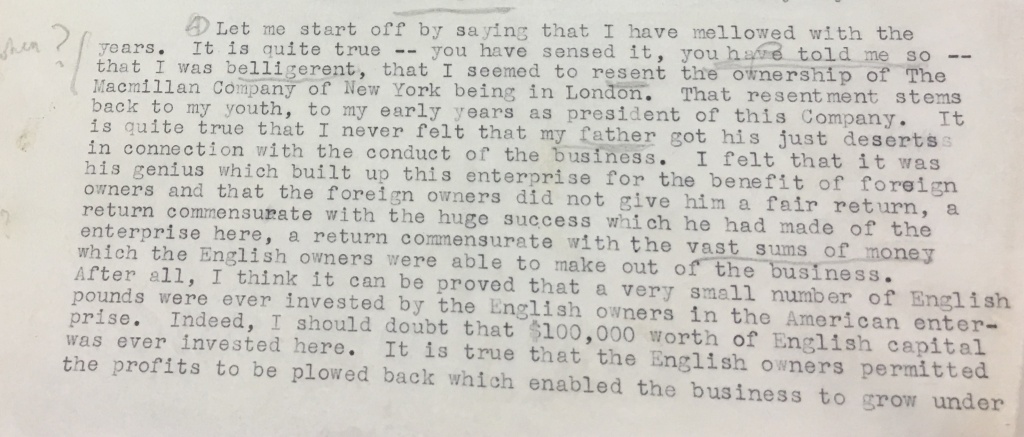The telling details of history

Since my big project, A Poetics of Editing, went public two years ago any time snatched for research has been devoted to a story from the publishing history of the 1950s. This time the output is an article, not a whole book, but in many ways it has been just as absorbing and has inspired a desire to develop the tale for a wider public.
The article, in the journal Logos, is called ‘History with Feeling: The case of Macmillan New York’. This company, once one of the biggest publishers in the US, now exists only in scraps of intellectual property. The inciting incident is the sale of stock in 1951 by the majority shareholder, the London parent Macmillan & Co Ltd – an action taken only reluctantly, at the urging of the New York company’s principal, George P. Brett Jr.
A stockmarket deal might not sound glamorous but behind the event one finds passionate stories, set against historic events on the world stage at the precise moment when global power shifted from one country to another. Brett’s aim was to make the company ‘wholly American’ – to avoid disapproval from isolationist US readers but also, one ends up suspecting, to express national antipathies of his own and resolve an unacknowledged sense of shame.
What was the fascination that sustained my long hours in the archives? Just as the key actors in this historical drama had a mix of motives, so did I. The correspondence evoked a time that profoundly shaped the world into which I was born, and settings – the cities of New York and London – that have both been my home. The cultural antipathies also had resonance for someone who has spent her whole life negotiating prejudices on both sides of the Atlantic.
The fascination also lies in the sheer joy of history as a method. Structural analysis is fine, but we need something more. The telling detail about a moment in time and space that leads to specific decisions. The voices that ring out from letters – like the one pictured above from Brett to his London counterpart Daniel Macmillan* – which are purposive but also full of unspoken meanings. What is going on in their world for the correspondents to assume that a particular type of persuasion was needed? We engage afresh in the rhetorical exercise, at our own new juncture in time and space.
* Photo © Macmillan Publishers
